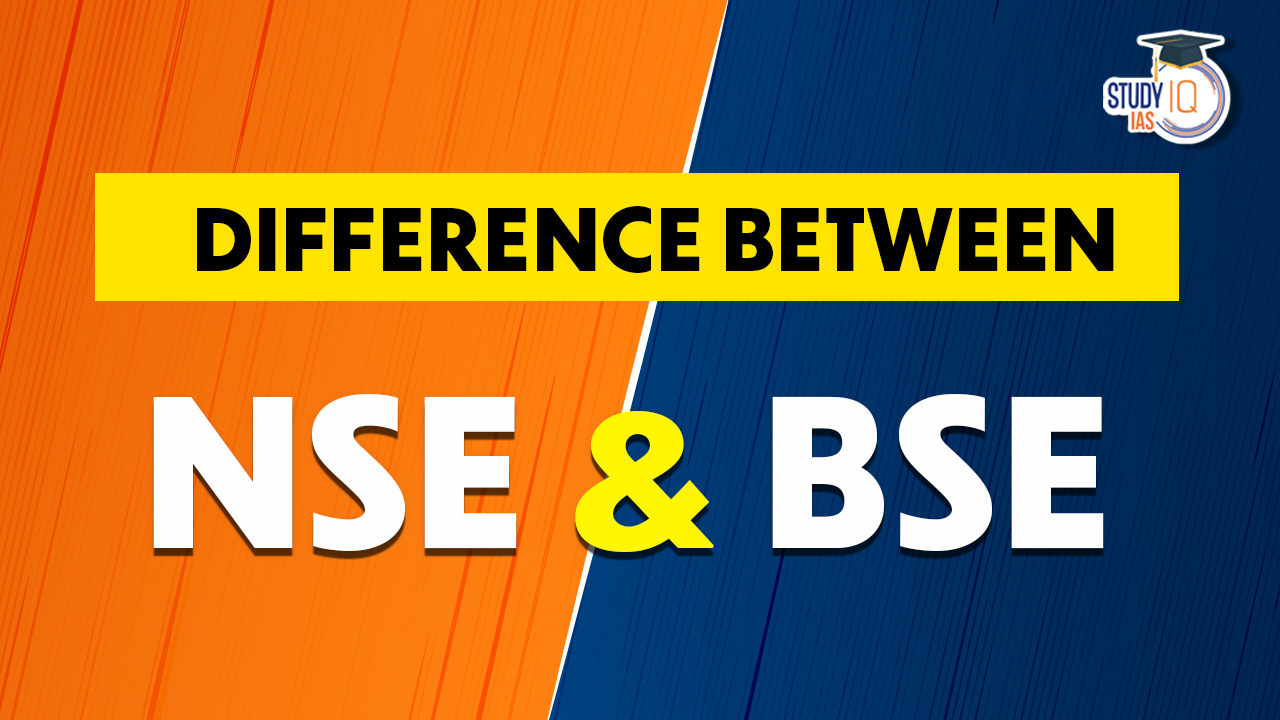Table of Contents
Difference Between BSE and NSE
In the fast-paced world of finance and investing, stock exchanges play a pivotal role in facilitating the buying and selling of securities. In India, the National Stock Exchange (NSE) and the Bombay Stock Exchange (BSE) stand as the country’s leading stock exchanges, commanding significant attention and participation from investors, traders, and businesses alike.
These exchanges serve as vital platforms for capital formation and investment opportunities. While both NSE and BSE share a common purpose, they possess unique characteristics and offer distinct features that set them apart. Let us delve into the differences between NSE and BSE, examining their origins, structures, trading mechanisms, and market influence.
Read More: List of Stock Exchanges in India
What is BSE?
Asia’s first stock exchange, the Bombay Stock Exchange (BSE), was founded as the Native Share and Stock Brokers’ Association in 1875. The BSE has more than 5,500 listed companies and its headquarters are in Mumbai. It offers a trading platform for debt instruments, equity derivatives, and currency derivatives. The exchange is one of the biggest stock exchanges in the world with a market capitalisation of more than $2 trillion.
What is NSE?
In terms of market capitalization, the National Stock Exchange (NSE) is the largest in India. With approximately 1,600 listed firms, it was founded in 1992 and has its headquarters in Mumbai. Equity derivatives, currency derivatives, debt instruments, and stocks are all traded by investors on the NSE. The NSE is the third-largest stock exchange in the world with a market value of more than $2.5 trillion.
Major Difference Between BSE and NSE
The following points comprehensively highlight the Differences between BSE and NSE:
| Bombay Stock Exchange (BSE) | National Stock Exchange (NSE) | |
| Establishment and History | Established in 1875, it is Asia’s oldest stock exchange and has a rich historical legacy. | Established in 1992, it is a relatively newer stock exchange but has rapidly gained prominence and emerged as a major player in the Indian stock market. |
| Ownership and Governance | It is a corporatized and demutualized exchange, with a diversified ownership structure consisting of several shareholders. | It is also a corporatized and demutualized exchange, with a similar ownership structure, including domestic financial institutions and public sector banks. |
| Market Indices | The BSE Sensex is the key market index of the BSE, consisting of 30 large and well-established companies representing various sectors. | The NSE Nifty is the flagship market index of the NSE, comprising 50 actively traded stocks from different sectors. |
| Trading Mechanisms | BSE operates on a traditional open outcry trading system, where traders physically assemble on the trading floor to buy and sell securities. | NSE operates on a fully automated electronic trading system called NEAT (National Exchange for Automated Trading), which facilitates faster and more efficient trading. |
| Market Capitalization | BSE has a higher number of listed companies compared to NSE but generally has a slightly lower overall market capitalization. | NSE has a higher market capitalization compared to BSE, primarily due to the larger presence of actively traded stocks. |
| Market Dominance | Historically, BSE has enjoyed a prominent position and strong brand recognition in the Indian stock market. | Over the years, NSE has gained significant market share and emerged as a leading exchange, known for its technological innovations and efficiency. |
| Derivatives Trading | BSE offers various derivatives products, including stock futures and options, currency futures, and interest rate futures. | NSE is known for its highly active and liquid derivatives segment, offering a wide range of products, including equity derivatives, currency derivatives, and interest rate derivatives. |
| International Presence | BSE has limited international presence and collaborations. | NSE has expanded its global outreach through strategic partnerships and collaborations with international exchanges, enhancing its global visibility. |
Understanding the differences between BSE and NSE is crucial for investors, traders, and market participants to navigate the Indian stock market effectively and choose the most suitable platform for their investment needs.
Read about: Gross National Product
Difference Between BSE and NSE UPSC
The distinction between BSE and NSE holds significant relevance for UPSC aspirants as it is a topic covered in the UPSC Syllabus, particularly under the Economics and Indian Economy sections. Understanding the differences between these two major stock exchanges, such as their establishment, governance, trading mechanisms, market indices, and derivatives trading, is crucial for aspirants to grasp the functioning of the Indian stock market.
This knowledge enhances their understanding of the economy, facilitates analysis of economic policies, and enables them to answer questions related to financial markets effectively in UPSC examinations. Aspirants can further strengthen their understanding through dedicated UPSC Online Coaching and practice their knowledge through UPSC Mock Test, ensuring a comprehensive grasp of this important topic.
Read about: Gross Value Added


 Goods and Services Tax (GST), Objectives...
Goods and Services Tax (GST), Objectives...
 World Oceans Day 2025, History, Theme, S...
World Oceans Day 2025, History, Theme, S...
 World Environment Day 2025, Theme, Histo...
World Environment Day 2025, Theme, Histo...





















